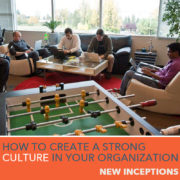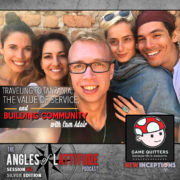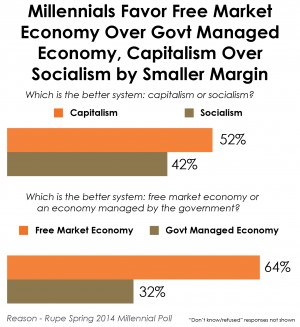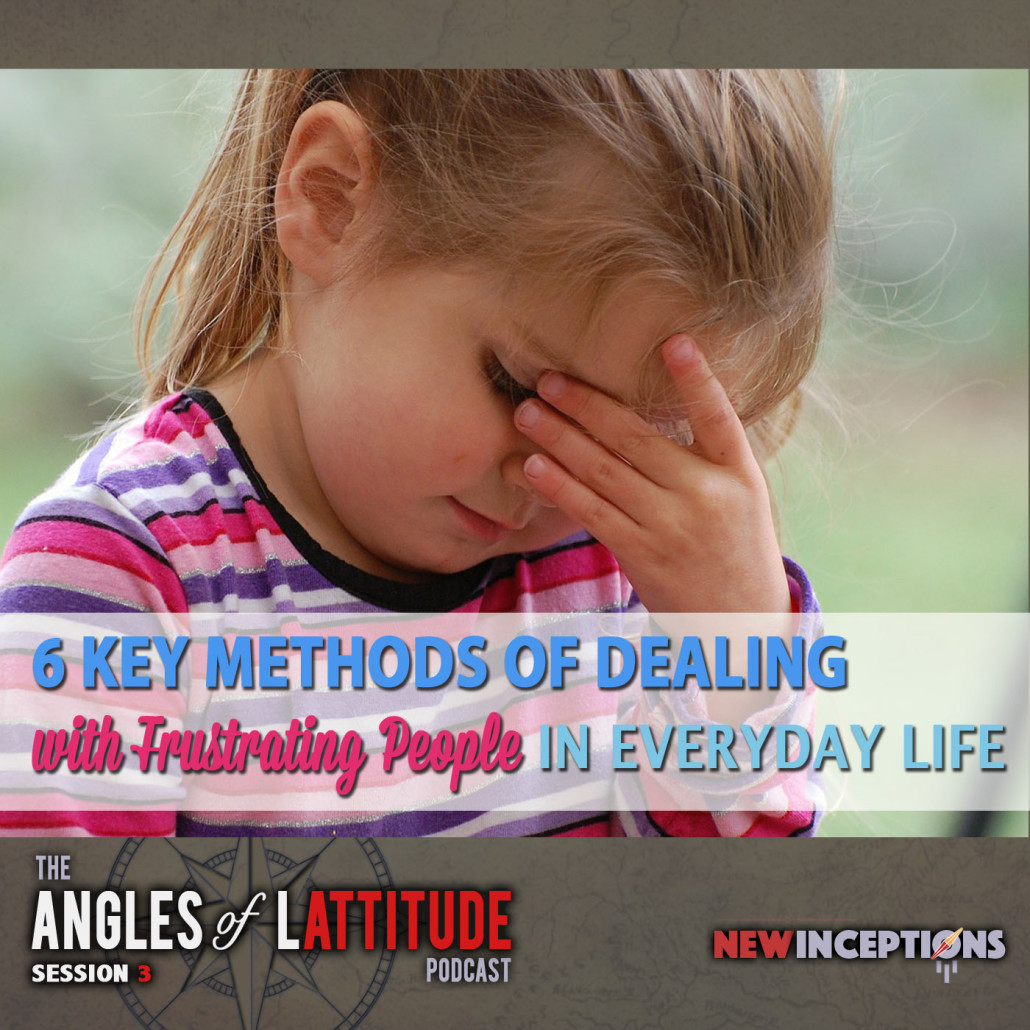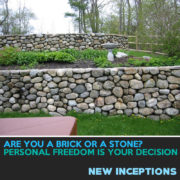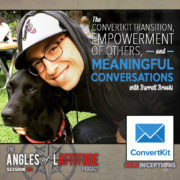How to Create a Strong Culture in Your Organization
Whether you’re part of a a business, a nonprofit, or somewhere in between, building a culture for an organization is critical to its overall success.
In fact, culture is more important than having a vision, a mission statement, and a strategy of how things are going to be done.
People want to know how the organization is run before they sign up to be a part of it, right? I mean, isn’t that part of what you were told to do when interviewing for a job? Find out about company culture and see if it fits you?
Doesn’t it make sense that you should offer your new team members or new employees the same benefit?
If you don’t have a well defined culture, people aren’t going to really know the rules of the group.
While you might be able to grab some early adopters to help you out, in the long run, not having a defined culture is going to cause problems.
So let’s avoid those problems and see if we can’t start to build a culture within your group.
Why Culture First?
You might have done a double take when I said that building a culture needs to come before your vision, mission, and strategy.
Why would I say that?
Well, the simple truth is that culture is all about people – who are really the most valuable asset in your or any other organization.
I mean, when you think of vision, sure, there’s the saying a “a man without vision shall perish”. A mission statement is kind of the same thing.
Then there’s the idea that to differentiate yourself from other companies, you have to have your own strategy.
These are all true – BUT – they’re more focused on products, services, and outcomes of your particular organization.
If your goal is to impact as many people as possible through your work, (or your company’s work,) then you’re going to have to get help. Having a defined culture will help you bring in the right people and retain them in your organization. Otherwise, you’ll bring people in, but they might not know what the lay of the land is and where they fit in it. That might just make them eventually go somewhere else that have those parts established.
What is Culture?
So, if you’re ok with the idea that the focus of your organization should be on people first and secondly on how things are done, then we should probably move on to defining culture.
Culture can simply be thought of as “the way of life” in a community, or in this case, an organization. It is cultivated over time through three aspects that are utilized and messaged throughout the group:
- Behavior
- Symbols
- Systems
As human beings, we’re hardwired to adjust and fit in the communities of which we are members of. It’s essential if we want people to act a certain way when it comes to the group. If the “rules” are spelled out clearly, people will adjust their own rules accordingly. And, if they can’t, they’ll show themselves (or be shown) the door.
Let’s look at those three components a bit closer:
Behavior
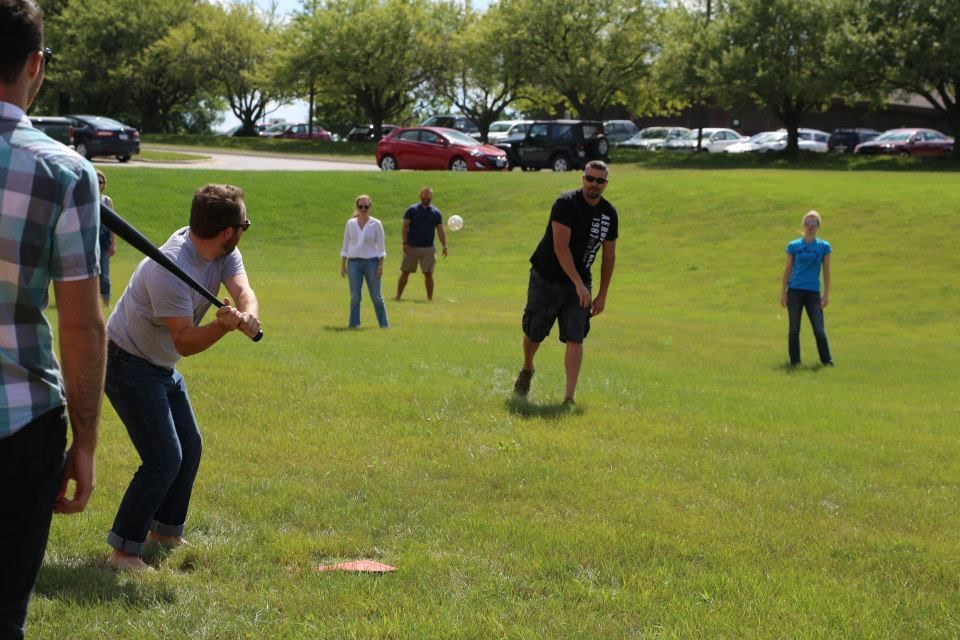
Make sure to do team building activities beyond the office.
When it comes to culture, the first thing we need to focus on is what we ourselves are doing. Do we, as leaders, walk the walk as well as talk the talk?
Ask yourself if your actions or demeanor change when you’re in a 1 on 1 setting, compared to the setting of a small group of people, or when you’re in a large group?
The reason this is important is that once you bring people in, you want to make sure they stay. And if you say one thing and do another, it’s not going to help your case any.
For example, if you’re wanting to run a company or (be part of one) where you want to make millennials in it happy, make sure to do these three things:
- Build Connection – Be transparent by sharing stories, valuing strengths, and recognizing individuals for their work. Don’t treat people as robots. Instead, give them activities outside of their normal work that will allow them to gel a bit more as a team.
- Be a Coach – If you see a personal problem that needs to be addressed, don’t focus on the negative part of it – that they screwed up and they need to fix it. Instead, help them see how they can handle the situation better next time.
- Give them Significance – Let them know how their job connects to the big picture. If they know how their role is significant, then they’re less likely to search for meaningful work elsewhere.
Symbols
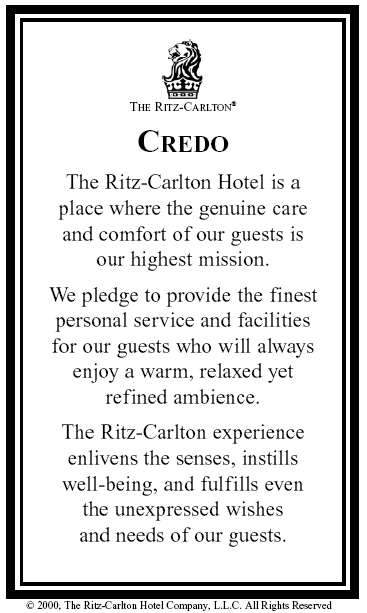
The Ritz-Carlton service card is a symbol of their culture.
Next, we need to think about the meaning behind how things are done the way they’re done in our working group.
The Ritz-Carlton Hotel Company, for example, is actually pretty meta about this. They have their employees carry around a card that reminds them of their culture. Not only is the card a symbol of their culture and how important it is, but if they were to actually forget a part of it, it’s there for an easy reminder.
Other symbols of culture that you could consider for your organization might include:
- How time is spent. Do you have short time sensitive meetings? Why?
- Do titles actually mean anything? If so, how do people get promoted and why?
- How communication works. Do people have to communicate in a hierarchical manner? Why or why not?
Systems
Finally, the third part of an organization’s culture are the systems that it uses to get things done.
In the online small business world, one of the topics that comes up all the time is systems.
You’ll hear many seasoned entrepreneurs say, “make sure the work you’re doing can be written up in a systematized way so that when it’s time to pass it off to someone else, it won’t be difficult to hand it over”.
As an example, this can mean something as complex as editing media and content and specifically what to do, all the way down to keeping track of what’s measured when that media is published.
It can also mean when you’re moving from one project to another that you know what gets reported to the client or other members of the group.
When you’re building systems, make sure you include the use of:
- Structure – Is the work that people are doing being done in a effective way? Can it be better adjusted to fit the needs of the client or audience?
- Measurables – What kind of payoff is the work having?
- Reporting – Who needs to know about what measurables and why?
Intangibles of a Culture
Once these pieces of culture have all been considered and installed, it will definitely affect things that we can see. People might start dressing differently. They might be on time when they’re supposed to be. And perhaps you might not feel like you have to do everything.
But it will also start having an effect on things that are harder to grasp.
Knowing about these intangible parts of a culture can help you as the leader. You’ll actually be able to put your finger on the pulse of the organization to see how well it’s actually doing.
Trust

Remember doing this? Don’t forget the meaning behind this exercise!
Is there trust in the group? If there is an absence of trust, then it probably stems from the leader’s unwillingness to be vulnerable with the group. If you’re not open about your mistakes and weaknesses, then there’s not going to be a foundation of trust.
Unified and Distinct Culture
Can you articulate a unified and distinct organizational culture? If you can understand your organization’s culture, it will have multiple payoffs within your organization.
Members of a unified culture will more likely have:
- Strong feelings of personal effectiveness.
- Company loyalty
- Consensus about the group’s goals
- More ethical behavior.
- Reduced levels of job stress and tension.
- A higher willingness to work hard and care more.
Action Steps to a Strong Culture
So what culture are you trying to create or sustain? What actions are you and those around you carrying out to live out that culture?
Here are some questions that will help guide you through this evaluation process. If it’s more than you at the helm, I suggest you get those other members together and brainstorm through this discussion.
- What type of culture do you desire? Write it down as you verbally describe it with your team.
- Have someone else verbalize it back to you. Are you satisfied with how they translated it? If not, describe it better.
- Creative five actions for each of the three elements of building a culture (behavior, symbols, and systems) that you and your leadership will create, display, and live out to support your desired culture.
- Using those same three areas, list two or three things that you feel should be eliminated or changed because they creative negative tension and don’t support your desired culture.
Don’t keep this discussion in the dark. If there’s more people in the company than you and your immediate leadership, make sure they get in on this exercise too. They’ll get to know the desired culture AND learn how they can support it by their actions.

